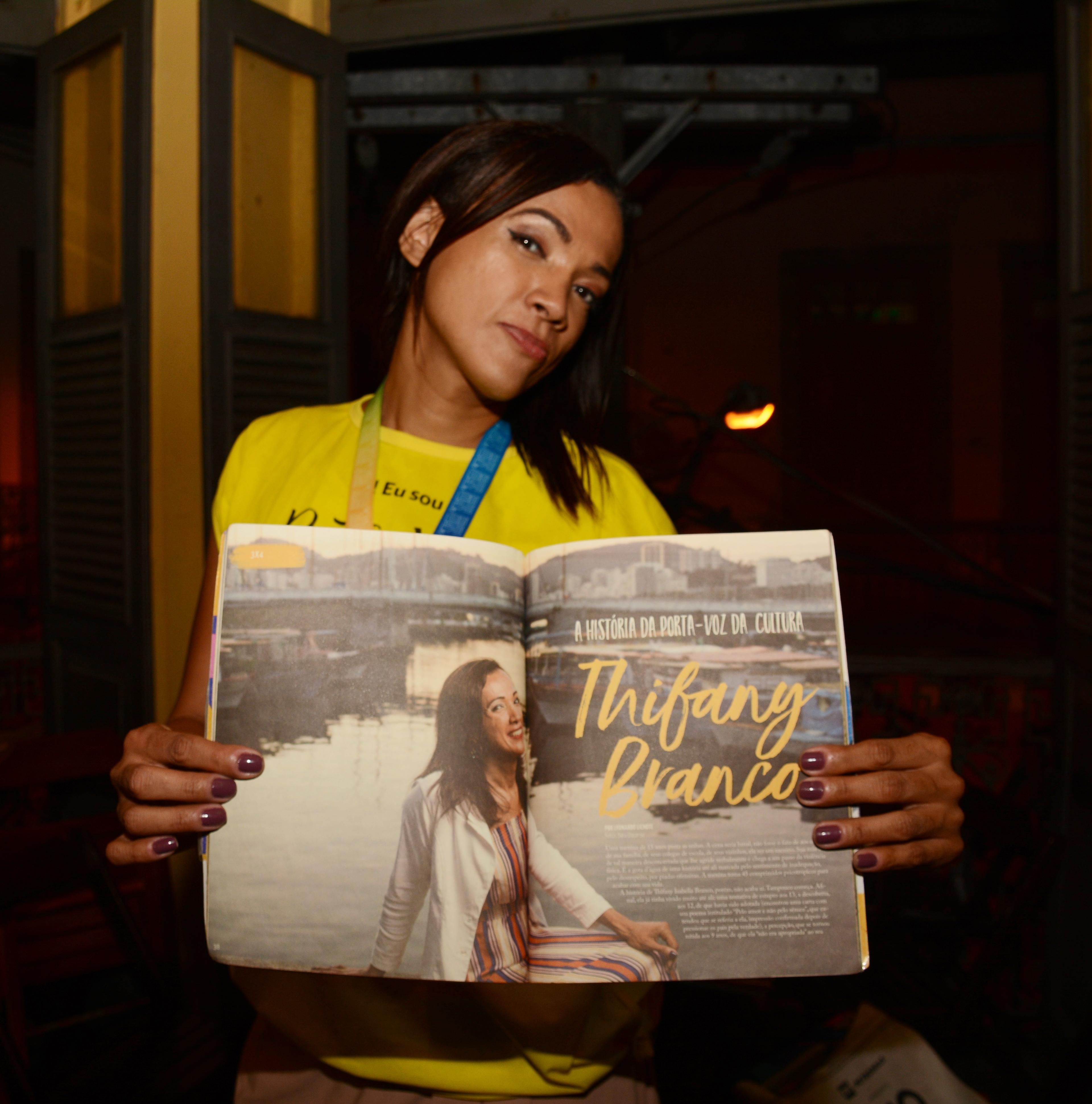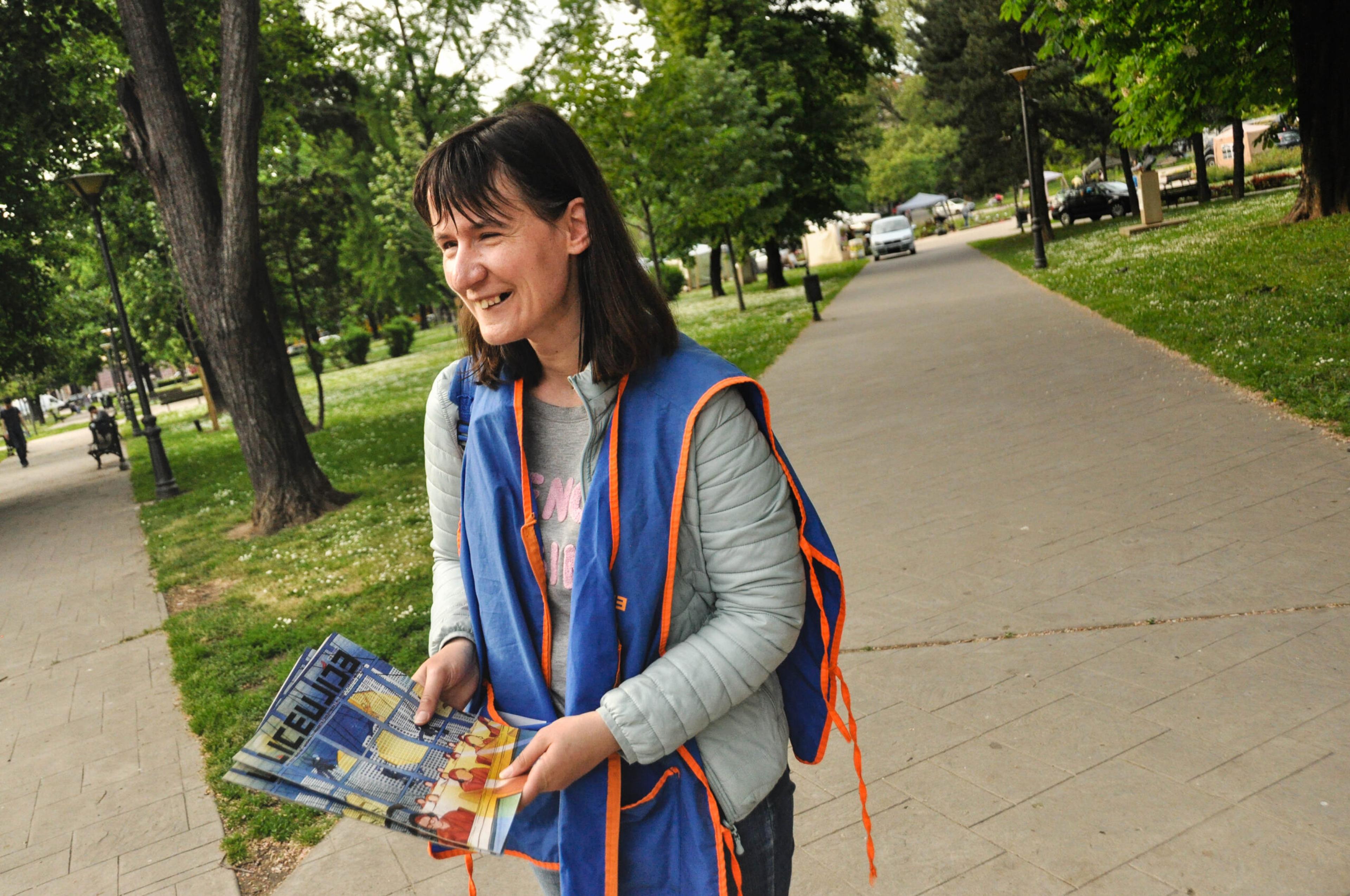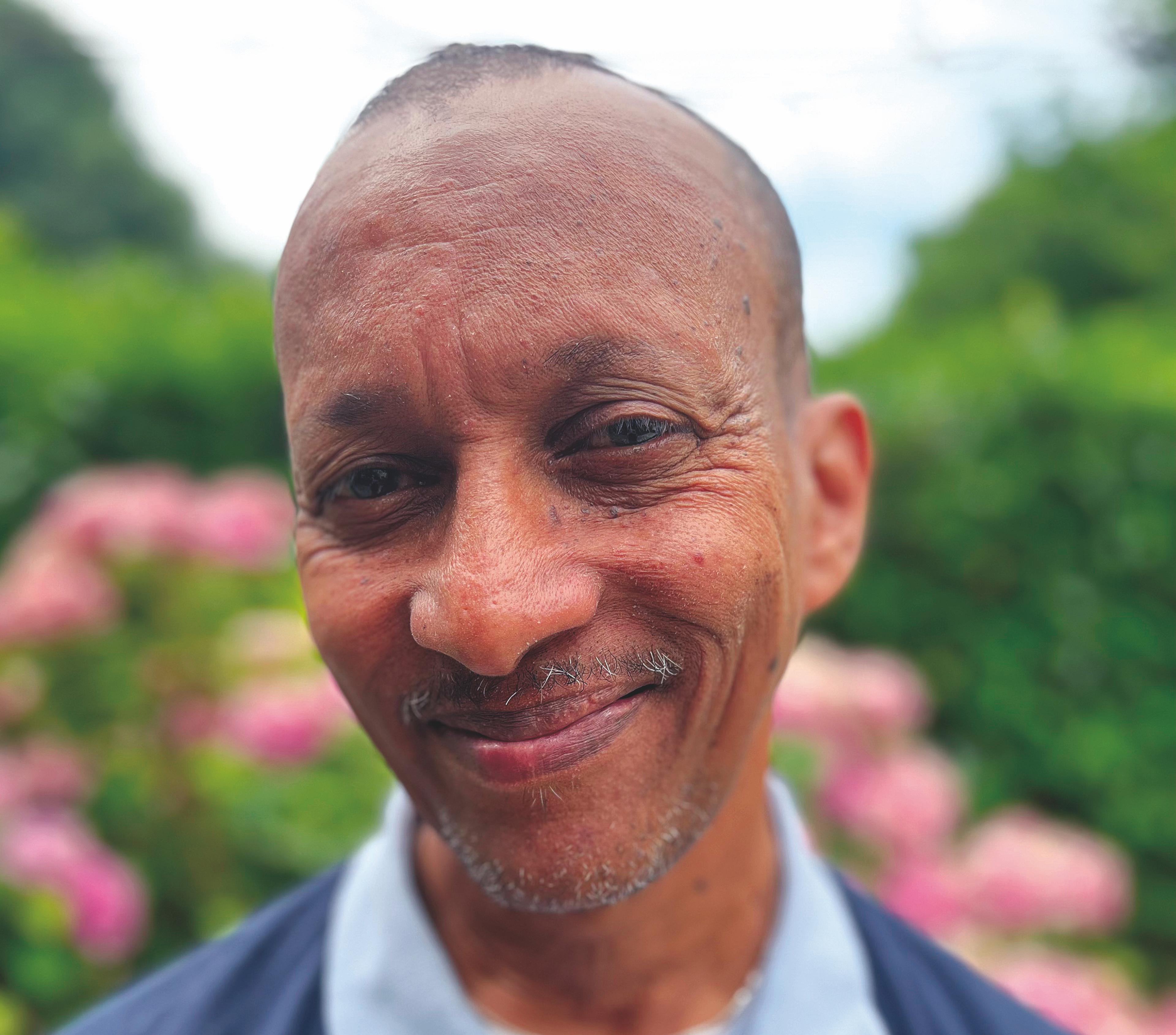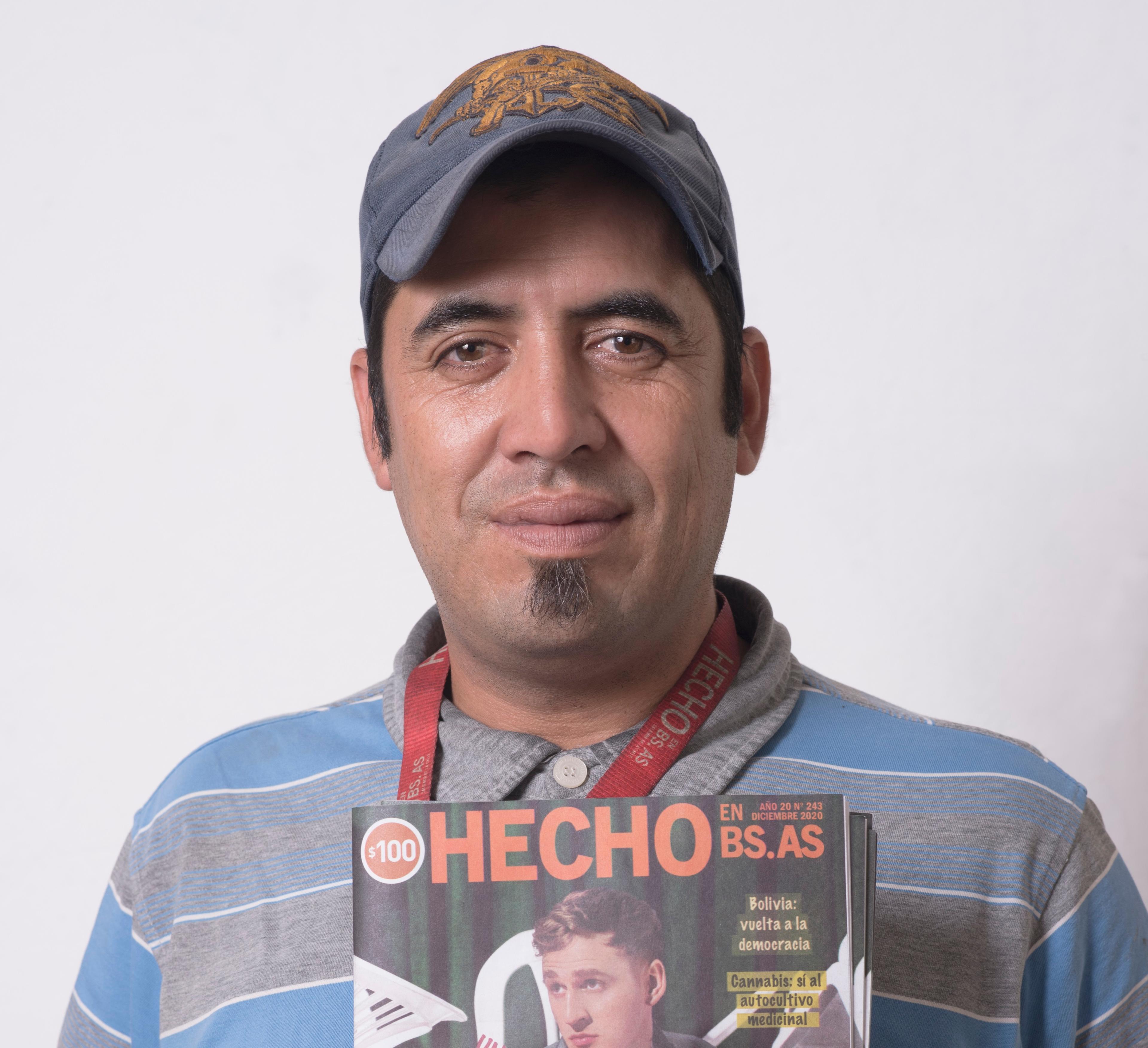Revista Traços cultural spokesperson Thifany Branco: “Over the years, I have learned that my gender identity is rejected by society. Traços accepted me as I am and gave me back the self-esteem I had lost”

Thifany sells a copy of the magazine to a customer. Courtesy of Revista Traços.
- Vendor stories

Thifany Branco grew up having her identity rejected as she came out as transgender. It led to some traumatic experiences. However, at 41 years old, she has been able to shine as part of Brazilian street paper Revista Traços.
A 15-year-old girl paints her nails. The scene might seem commonplace, if it weren't for the fact that, in the eyes of her family, her classmates and her neighbours, she is a boy. Her mother is so disconcerted that she verbally attacks her and even uses physical violence. This is the last straw for this young girl whose story is marked with the feeling of inadequacy, the lack of respect towards her and being the target of offensive jokes. The young girl attempted to end her life by swallowing 45 pills.
The story of Thifany Isabella Branco, born in 1980, does not end there, however. She’s already been through a lot: an attempted rape at age 13; the discovery, at age 12, that she was adopted; the realisation, at age 9, that she "didn't belong" in a boy's body; playing dress-up in secret with her mother's clothes, imitating popular Brazilian singers like Angelica and Rosanna.
New beginnings
Thifany's life is full of breaks with the past and new beginnings. She was 32 when she adopted the name Thifany. "The supervisor at the telemarketing company where I worked asked me what I wanted to be called," she says. Years later, she earned a degree in advertising. And today, at 41, she has become one of the cultural spokespersons for Revista Traços.
"Over the years, I have learned that my gender identity is rejected by society. What I am now doing is trying to acquire professional skills to assert myself beyond that. I am fluent in English. I have a degree in advertising. I want to study journalism. In spite of all that, the most common line I’ve heard was, 'You don't fit the profile of this company,'" she says. “Traços accepted me as I am and gave me back the self-esteem I had lost.”
Thifany works with Traços in the area of Post 9, in Ipanema (Rio de Janeiro), and says she is already recognised by the regulars in the area: "The other day, I was walking down the street and I heard a man comment while passing by: 'Look, it's Thifany, there!'" The cultural spokesperson jokes about the possibility of becoming a columnist for the magazine in the future – she has learned that there is no path she can't at least try.

Courtesy of Revista Traços
Memorable moments
Her life story, fraught with tears, includes moments even more impactful than her suicide attempt at age 15 (mostly motivated by the pain she felt at seeing her mother suffer because of her gender identity).
When she became an adult, she moved to São Paulo with a man she had met while working as a prostitute. She then received a call from an aunt telling her that her mother was in prison for having ordered the death of her father, who was a paedophile, and from whom she had been separated for 17 years. “After five years in prison, my mother died," says Thifany. “A few years later, my sister, who was born with three brain injuries, died. She was the most innocent person I knew. She was the only one in my family who treated me like a woman.”
Her life, which up until then alternated between evangelic churches (where she sought peace, but was denied her identity) and repeated attempts to change her gender (on and off hormone therapies), defined itself after the death of her mother. With the support of her friend Soraia, she resumed the process at age 32. Although it wasn't the solution to all her problems, she now had a foothold, an identity.
"I've spent my whole life being a nanny or working in foster homes. But I dream of adopting a child of my own, getting married, having a house," says Thifany, who sees Traços as an opportunity to be who she is. "I have many problems. But when I walk through Ipanema with the magazine in my hand, I leave them all behind."
Translated by Alexandrine Séguin
Support our News Service
We believe journalism can change lives, perceptions, and society - underpinning democracy for a more equitable world. Learn more about the INSP News Service and how to support it here.


